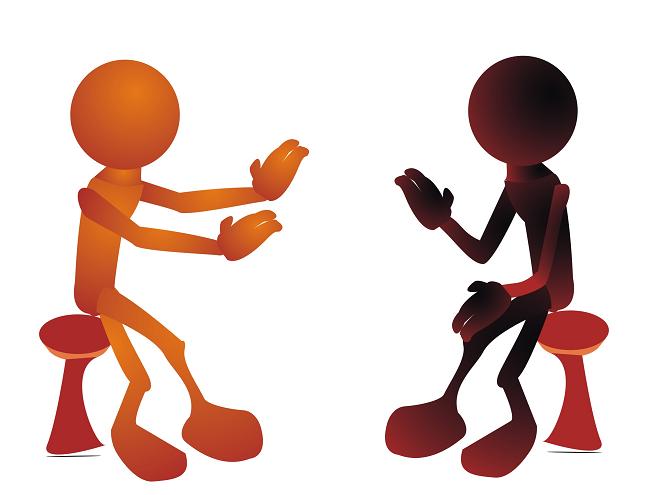Discover How Easily You Can Negotiate Anything

In life, you don’t get what you deserve. You get what you negotiate.
—Alex Mandossian
We all know life isn’t fair. We don’t need reminders of that golden nugget of truth. We can see how unfair life is everywhere we look.
So yeah, we very often don’t get what we deserve. We see the greedy profit and the poor fail again and again. So what’s going on here?
One of these groups has honed its ability to negotiate in its own best interest. And usually these people negotiate ONLY in their own best interest without regard for anyone else involved in the negotiation.
That’s disheartening but true.
So how do we level the playing field?
Everything is Negotiation
Start to look at everything in life as a negotiation. Does that sound extreme?
Are you married? You negotiate everyday with your spouse.
Who’s going to pick up the kids today? Who’s going to do the laundry?
Are you an entrepreneur? You participate in a million, little micro-negotiations everyday.
How much are you going to charge me for this project? What are the terms of this agreement with our new JV partner? Who’s paying for lunch today?
And we negotiate with ourselves all day long.
Should I go to the bathroom now or when I get off the train? Can I wait?
Crude but true.
And on and on…
If you can start to see that your whole life is made of small and large negotiations you can begin to change the paradigm.
First, you can stop taking the big negotiations (a new car, marriage, divorce) so personally. That’s a hard ask, I know, but stick with me here.
Everyone is just trying to get what’s best for themselves.
Secondly, you can begin to customize a strategy BEFORE you enter into most any negotiation, large or small.
Most of us do the exact opposite when we start out in our grown up lives: we take everything personally and we go in blind to most situations.
As we get older, hopefully we stop taking everything so personally, but not really, right? When it comes to the big stuff, the meaningful stuff, we take it very personally.
Speaking on the other side of divorce it is nearly impossible to separate yourself during that process and not take things personally. Especially when there are lawyers and children involved.
But if you go into every negotiation with a strategy you can limit both the emotional investment as well as the emotional fallout.
Let me explain.
Related Post: How To Speak to Every Buying Persona in the Right Sequence
Related Post: What Entrepreneurs Find Most Challenging About Seeding
Related Post: Create A Safe Buying Environment to Eliminate Rejection
The Biggest Obstacle to A Successful Negotiation
What’s the biggest obstacle to a successful negotiation?
Not knowing what you want.
When you walk into a negotiation with another person or entity without a plan you walk out with exactly what you planned for…nothing.
My good friend T. Harv Eker has a great saying for this kind of situation…
“People don’t get what they want because they don’t know what they want.”
Knowing what you want going into any negotiation you will come out with most if not all of what you wanted. You’ve created an objective, you’ve designed a plan and you’ve prepared.
So that takes care of the “…going in blind” part, but what about not taking things too personally?
It’s so easy to get caught up in the emotion of a negotiation. How do you limit that?
Knowing what you want helps you get more of what you want in a negotiation. But having the RIGHT PLAN helps you re-frame the deal and limit emotional reactions.
Below I’ve laid out 5 strategies. These strategies create a 5-Point plan I use in every negotiation to get what I want and to calm that little voice in my head telling me I’m getting the short end of the stick.
5 Strategies for Negotiation
Managing Uncertainty is an imperative for every entrepreneur. You must manage uncertainty and you must manage risk. Otherwise, you spend your time cleaning up messes and fallout rather than moving the needle of your success.
You’re either managing uncertainty or you’re running around managing the consequences of that uncertainty. An intelligent entrepreneur will clean up consequences for a while and then realize she’s got to get ahead of the ball, ahead of the uncertainty before the consequences fall out.
These strategies manage uncertainty in negotiations and they work every time.
1. Win-Win or No Deal
It’s not Win-Win, it’s Win-Win or No Deal. If both parties aren’t getting what they want or most of what they want, I walk away. Remember, this is ethical negotiation.
I don’t look at the other person across the table as an opponent. She is my negotiating partner. We negotiate together to find an outcome that works for both of us. If I see you’re not getting a good deal I walk away.
Why do I negotiate this way?
Because I always play the long game. Yes, it’s good business to be ethical. But if I tried to win at all costs with no regard for my negotiating partners what kind of a reputation would I have?
I’m doing business with JV partnerships and other relationships with people I’ve known for 20, 25, 30 years. Why would I want to jeopardize those relationships just to get a big win in one negotiation? Makes no sense.
You might be saying, “Ok, but the occasional one-off like with a car dealer isn’t a big deal.”
In my world I live by this code…
How you do anything, is how you do everything.
That’s another gem from my friend T. Harv Eker and it’s absolutely spot on. I live and work by certain principles that don’t shift with the tide or the wind. I value my reputation and my relationships. And this strategy of Win-Win or No Deal is one of the lynchpins of my success.
On the flip side, if I negotiate with you and you try to win at my expense that’s the last time we’ll ever do business. It works both ways, and it’s protected me well.

2. Listen First, Ask Second
50% of negotiating is listening to the other person. Find out what the other person is after in the negotiation. Why? This will help clarify to you what they want to get. But listening does something even more important.
Many times, your negotiating partner will talk themselves through the negotiation while you listen and nod. This is a wait and see strategy and many people are uncomfortable with it. They need to talk to feel they are dominating the negotiation.
But listening manages uncertainty. By listening you hear what they other person is hoping to get. But say there are some obstacles that need solutions. Many times by actively listening, the other person may offer solutions that resolve the situation.
Why is that important?
Because listening is a way of allowing the other person to feel they’re winning. But I’m not being underhanded here. Listening is an act of benevolence and it’s highly underused. People don’t listen to one another.
And in negotiation listening is severely underestimated. So in your next negotiation, whether it’s with your spouse, your kid or your JV partner, try active listening before you start asking questions and see what happens.
You can use a question as a prompt, like, “what are you hoping to get out of this deal?” or, “what are the terms you want to discuss?” And then shut up.
This time-tested and FOOL-PROOF sales conversion 4-Part Video Training Series gives you the fastest, easiest and most reliable way to get High-End Clients!
3. Never Go First
You’ve heard this and you may blindly do it, but why? The underlying reason to not go first is because you want to find out what their bottom line and top line price or term is, how much or how little they’re willing to live with.
If you name your price right off the bat you’ll never know what they would’ve been happy with. Now, many people are familiar with this strategy so sometimes it’s hard to not go first.
But that’s why active listening is so important, because if you allow your negotiating partner to start talking they may just end up naming their price.
Be willing to wait, to listen and to allow for the uncomfortable silences.
4. Know Your Final Offer
What’s your bottom line? What’s your deal breaker?
Do you know the answer to these questions?
If you don’t know, don’t begin negotiations. Why?
Because negotiations can be passionate experiences and you don’t want to start thinking with your heart. You want a clear bottom line before you start any negotiation. Meaning, you want to know what you can live with…and without.
If you don’t decide your final offer before you go in and you get low-balled, you’re going to be upset with yourself for a long time afterwards.
What’s low-balled?
Say you’re selling your gently used car and the value of it is $15,000. Well, maybe it’s got some scratches or it’ll need new tires in about 3000 miles so you offer it below the actual value at $13,000.
If someone comes along and says, “I’ll take it off your hands for $10,000 cash right now.” They’re low-balling you. They’re offering you a lot less than what you asked.
That’s an appealing offer if you haven’t gotten many offers on it so far. Can you live with that offer? Can you live with the $10,000?
What if you’ve had the car on Craigslist for 4 months with no takers? You may feel differently than when you first listed it. You have to weigh these factors and you have to weigh them before you start talking to someone.
Apps like Craigslist, LetGo and OfferUp have made us all a little better at negotiating. Know why?
We get the gift of delayed response. We’re not face-to-face making deals. We’re speaking through text and email so we get to mull things over; figure out what we can live with and what we can’t.
But when you get in front of someone you’ve got to be prepared. Knowing your bottom line before you start negotiating is an expert move.
5. Juggle Non-Money Factors
Non-money factors are things like:
- Pick-up only, no delivery
- Money Back Guarantee
- Warranty option
- Free returns
- Restocking fees
- Free repairs
The list of non-money factors goes on and on. And you can learn to use non-money factors in your negotiations. For instance, you can negotiate with your credit card company to lower your APR if your credit is in good standing.
Even if your credit score isn’t perfect but you’ve made on-time payments and kept in good communication with your credit lender they are vested in reviewing your account and working with you.
If you’re a seller and you’re negotiating with someone who really wants to do a deal with you, you can say you’re firm on the price but you’ll negotiate the terms. Maybe you’ll give them free repairs for 3 years, or a money back guarantee.
Most of the time terms are a great way to negotiate, so incorporate terms into your negotiations.
This is another way to create a Win-Win.
Related Post: How To Speak to Every Buying Persona in the Right Sequence
Related Post: What Entrepreneurs Find Most Challenging About Seeding
Related Post: Create A Safe Buying Environment to Eliminate Rejection

The Wrap Up
- Win-Win or No Deal
- Listen First, Ask Second
- Never Go First
- Know Your Final Offer
- Juggling Non-Money Terms
These are all the strategies that I sit down and determine BEFORE I negotiate anything, whether I’m buying, selling or trading. Why?
- They protect my reputation
- They ensure we both win
- They allow me to feel great about every negotiation
- Everybody walks away happy
If you’re the kind of person that needs to make sure you win by others losing, if you get off on that, then move along, I’m not talking to you.
Those people are out there. They’re called sociopaths and they walk amongst us. But that’s not most people. Most people want to walk away happy and feel more gratified that the other party is walking away happy too.
That is the essence of ethical marketing and negotiation and it’s why I feel compelled to speak and write so often on the subject.
We’re all in this together. Why not act like it in all your dealings? Protect your reputation and your relationships and play the long game. Use these strategies.
And learn to be a good negotiator so you can get what you deserve.
If you’re an entrepreneur one of the best ways of figuring out terms to offer with your products is by knowing your market. Click here for my 4-Part video training series. You will learn the fastest, easiest and most reliable way to increase high-end traffic.
Are you a good negotiator?
What’s your best negotiation story? I want to know!














